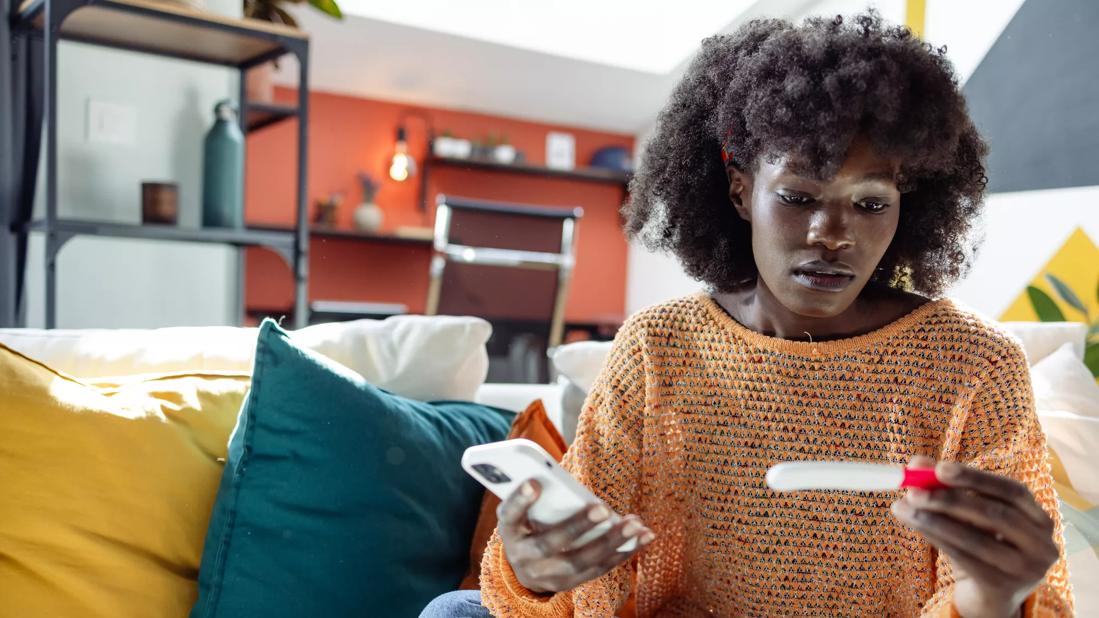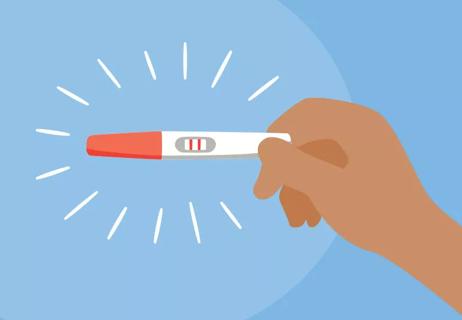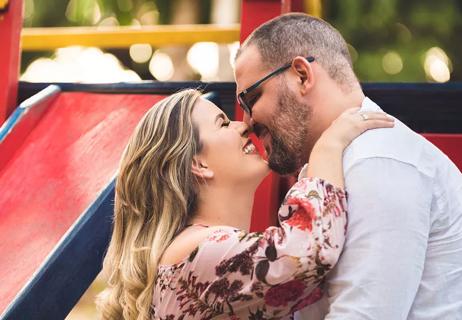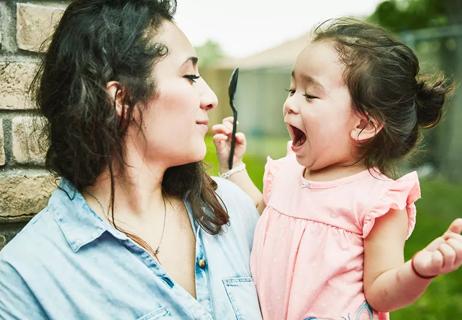While it’s probably not your most fertile time, it is possible to get pregnant if you have unprotected sex during your period

People have, and can spread, all kinds of misconceptions about when it’s possible to get pregnant.
Advertisement
Cleveland Clinic is a non-profit academic medical center. Advertising on our site helps support our mission. We do not endorse non-Cleveland Clinic products or services. Policy
And let’s say it again, despite what you may have heard or been told: You can get pregnant if you have unprotected sex during your period. It’s not likely to be your most fertile time. But it can happen.
We talked with Ob/Gyn Amy Stephens, MD, about the risk of getting pregnant during your period. Why does it happen? And what do you need to know to protect yourself?
The most fertile time of your cycle — the timeframe when you’re most likely to get pregnant — is when you ovulate, or release an egg, Dr. Stephens explains. That typically happens midway between periods.
“You have the highest chance of getting pregnant if you have unprotected sex during the few days before and after you ovulate,” she shares.
The most textbook case of an “average” menstrual cycle looks something like this:
In this scenario, no, you probably wouldn’t get pregnant by having sex during your period. Your period and ovulation don’t line up.
Advertisement
But your cycle doesn’t necessarily follow hard-and-fast rules. Your experience may (very likely) not follow that calendar.
Not everyone follows that classic example of an average cycle. There’s a lot of give and take. And that’s OK. It doesn’t mean there’s anything “wrong” with you.
But it’s that fluctuation can makes it possible to get pregnant on your period.
If your period comes more frequently than average, that whole idea of ovulating 14 days after your period starts is thrown out the window. Because ovulation typically (but not always) happens in the middle of your cycle, regardless of the number of days it’s been since your last period.
Let’s consider an example for someone with shorter-than-average cycles and midpoint ovulation:
Here’s where the problem is: Sperm can live in your reproductive tract for up to five days. So, even after you have sex, they can hang around and wait for an egg to fertilize.
So, in this case, a small number of sperm can still be available when you ovulate, even though you had sex during your period. If a sperm finds that egg and wiggles its way in — BAM — conception.
But, you may be thinking, I’m in the clear. My cycles are never that short.
That could be. But that doesn’t mean that you can’t have a cycle that comes surprisingly off-cycle.
“Things like weight loss, weight gain, stress, medications and uterine fibroids can cause a sudden change in your menstrual cycle, even if you’re normally very regular,” Dr. Stephens explains. “So, never say never.”
The average period lasts between two and seven days. But again, that’s just an average. For example, you may have periods that last longer than that.
That can be particularly true if you’re living with high levels of stress, take certain medications or have a condition like endometriosis, uterine polyps or polycystic ovary syndrome (PCOS).
The longer your period lasts, and the later in your period you have unprotected sex, the more likely you are to bump up against your ovulation window.
For example:
Even though you had sex on your period, you can still get pregnant. Because you’re well within the five-day window between unprotected sex and ovulation. So, sperm are still available. And they’re eager to fertilize.
Advertisement
The idea that you’ll ovulate at the midpoint of your cycle is more of a guideline than a rule. Some studies even suggest that only about 30% of women ovulate between days 10 and 17 of their cycle. Some ovulate earlier, some later.
So, even if you do follow an average cycle of 28 days or so, it’s possible you could ovulate much earlier than day 14. That means that if you have unprotected sex during your period and you ovulate early in your cycle, you can get pregnant by the sperm that are waiting around for their opportunity to fertilize an egg.
Breakthrough bleeding — that is, spotting between periods — isn’t all that uncommon. And while not all vaginal bleeding isn’t the same as having your period, you might not recognize it for what it is.
“When you have your period, your entire uterine lining is shed, including an unfertilized egg or eggs,” Dr. Stephens further explains. “But you can have vaginal bleeding that isn’t the same as a period. Not all bleeding clears out unfertilized eggs.”
Let’s play out that scenario.
You started bleeding and thought you were on your period. You had unprotected sex, because, hey, bleeding is birth control (or so you thought).
But the bleeding stops a day later.
Advertisement
It wasn’t your period after all. You were spotting.
Now, you’re ovulating, and sperm from the night before are swimming around looking for love. It’s the perfect storm for conceiving.
It’s certainly possible to get pregnant if you have unprotected sex during your period.
But is it probable? Likely not.
Chances are a fertility specialist isn’t going to recommend your period as the best time to have unprotected sex if you’re trying to conceive. But it’s not impossible that you could conceive on your period.
“During your period is most likely the lowest risk timeframe to have unprotected sex if you want to avoid pregnancy,” Dr. Stephens states. “But if you truly don’t want to get pregnant, there are much more reliable ways to prevent pregnancy than timing up sex to happen on your period. Because there’s always a risk of pregnancy if you’re not using contraception.”
The only way to prevent unwanted pregnancy is to abstain or use reliable birth control reliably, she emphasizes.
If you take birth control pills, that means taking them every single day at the same time. If you rely on the birth control shot (Depo-Provera®), keep your appointments. If you use condoms, be sure to use them properly to avoid a tear.
Advertisement
And to be extra careful (and avoid sexually transmitted infections), double up.
“It doesn’t hurt to use a condom in addition to birth control pills, IUDs or other methods,” Dr. Stephens suggests. “And it can help to ensure you’re really protected.”
If pregnancy isn’t your goal, your period isn’t a dependable form of birth control. Talk with a healthcare provider, like an Ob/Gyn or primary care provider, about the best birth control for you.

Sign up for our Health Essentials emails for expert guidance on nutrition, fitness, sleep, skin care and more.
Learn more about our editorial process.
Advertisement

While 80% of women will get pregnant within six months, age and other factors make a difference

How a BMI in the overweight or obesity range affects ovulation and how to increase fertility

A fertility specialist talks timeline, diet and other prep steps

The short answer from an Ob/Gyn

An Ob/Gyn explains the question of timing

Cravings are a natural response to hormonal changes, but giving into them may make you feel worse

It’s important to angle it toward your rectum or back, along the natural curve of your vaginal canal

Yes, you can pee with a tampon in; no, they won’t stretch out your vagina or make cramps worse!

The tropical fruit is a good source of antioxidants and vitamin C

Most people fall asleep within 10 to 20 minutes, but if your experience is different, adjusting your sleep schedule may help

Exploring your hidden side can lead to better understanding of what makes you tick